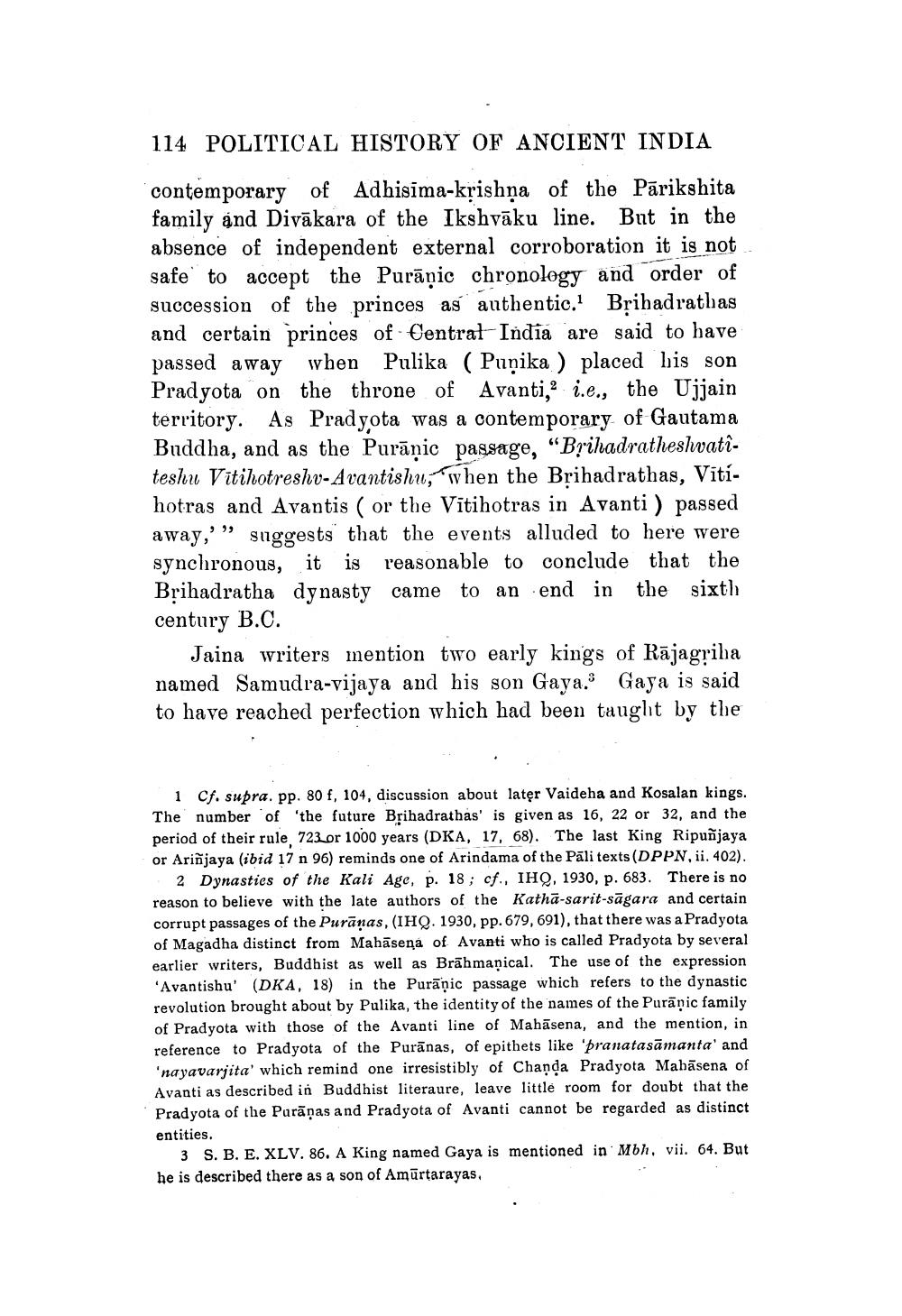________________
114 POLITICAL HISTORY OF ANCIENT INDIA contemporary of Adhisima-krishņa of the Pārikshita family and Divākara of the Ikshvāku line. But in the absence of independent external corroboration it is not safe to accept the Purāṇic chronology and order of succession of the princes as authentic. Bọihadrathas and certain princes of Central India are said to have passed away when Pulika (Puņika ) placed his son Pradyota on the throne of Avanti, i.e., the Ujjain territory. As Pradyota was a contemporary of Gautama Buddha, and as the Purāņic passage, “Brihadratheshwati. teshu Vitihotreshv-Avantishu, when the Brihadrathas, Vitihotras and Avantis ( or the Vītihotras in Avanti ) passed away," " suggests that the events alluded to here were synchronous, it is reasonable to conclude that the Brihadratha dynasty came to an end in the sixth century B.C.
Jaina writers mention two early kings of Rājagriha named Samudra-vijaya and his son Gaya. Gaya is said to have reached perfection which had been taught by the
1 Cf. supra. pp. 80 f, 104, discussion about later Vaideha and Kosalan kings. The number of 'the future Bțihadrathas' is given as 16, 22 or 32, and the period of their rule 723 or 1000 years (DKA, 17, 68). The last King Ripuñjaya or Ariñjaya (ibid 17 n 96) reminds one of Arindama of the Pāli texts (DPPN, ii. 402).
2 Dynastics of the Kali Age, p. 18; cf., IHQ, 1930, p. 683. There is no reason to believe with the late authors of the Kathā-sarit-sāgara and certain corrupt passages of the Purānas, (IHQ. 1930, pp. 679, 691), that there was a Pradyota of Magadha distinct from Mahāseņa of Avanti who is called Pradyota by several earlier writers, Buddhist as well as Brāhmaṇical. The use of the expression 'Avantishu' (DKA, 18) in the Purāņic passage which refers to the dynastic revolution brought about by Pulika, the identity of the names of the Puranic family of Pradyota with those of the Avanti line of Mahāsena, and the mention, in reference to Pradyota of the Purānas, of epithets like 'pranatasāmanta' and 'nayavarjita' which remind one irresistibly of Chanda Pradyota Mabāsena of Avanti as described in Buddhist literaure, leave little room for doubt that the Pradyota of the Parāņas and Pradyota of Avanti cannot be regarded as distinct entities.
3 S. B. E. XLV. 86. A King named Gaya is mentioned in Mbh. vii. 64. But he is described there as a son of Amūrtarayas,




